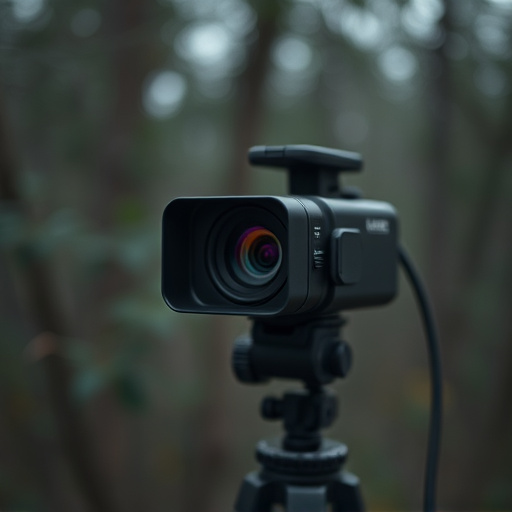Battery-operated hidden childcare cameras, though legal in private settings, raise significant privacy concerns in rental properties when installed without consent. Landlords and tenants alike must adhere to strict regulations, prioritizing transparency. Unauthorized surveillance through these covert devices can lead to legal repercussions, underscoring the importance of disclosure and informed consent for their deployment. Regular inspections by tenants and landlords are crucial to detect and prevent illegal installations, protecting sensitive privacy rights.
In today’s digital age, privacy concerns have reached a boiling point, especially within rental properties. This article explores the dark side of surveillance, focusing on battery-operated hidden childcare cameras—a growing concern for tenants and legal experts alike. We delve into the legal implications, common hiding spots in rented spaces, and practical measures to detect and prevent these clandestine devices. Understanding these secrets is crucial for both renters and landlords to ensure a safe living environment.
- Understanding Hidden Surveillance Devices: A Legal Perspective
- Common Hidden Camera Locations in Rental Properties
- Detecting and Preventing Battery-Operated Childcare Cameras Illegally Installed in Rented Spaces
Understanding Hidden Surveillance Devices: A Legal Perspective
Hidden surveillance devices, such as battery-operated childcare cameras, have become increasingly sophisticated and harder to detect. While their use in certain contexts is legally permissible—for instance, in private residences for child or elderly care—their deployment raises significant privacy concerns when installed without explicit consent. In many jurisdictions, the placement of such devices must comply with strict regulations to protect individuals’ right to privacy.
Landlords and property owners need to be mindful of the legal implications of installing hidden cameras. Unauthorized surveillance can constitute a breach of tenant rights and lead to serious legal repercussions. It’s crucial to disclose any existing surveillance systems and obtain consent for new installations, ensuring transparency and respect for residents’ personal space and confidentiality.
Common Hidden Camera Locations in Rental Properties
In rental properties, hidden cameras can be found in unexpected places, raising concerns about privacy and security. A common tactic is to install Battery Operated Hidden Childcare Cameras in areas that seem innocuous but offer clear lines of sight, such as ceiling corners, door frames, or even within electrical outlets. These compact devices are designed to blend seamlessly into the environment, making it difficult for tenants to recognize their presence.
Other spots often exploited by surveillance equipment include kitchen appliances like microwaves or refrigerators, where cameras can capture activity without drawing attention. Additionally, smoke detectors and ceiling fans may be repurposed as hidden monitoring points, taking advantage of their elevated positions and frequent usage to gather video evidence discreetly.
Detecting and Preventing Battery-Operated Childcare Cameras Illegally Installed in Rented Spaces
Detecting and preventing battery-operated hidden childcare cameras illegally installed in rented spaces is a growing concern for tenants and landlords alike. These tiny, discreet devices can be easily concealed within seemingly innocuous objects like toys, smoke detectors, or even light switches, making them nearly impossible to spot with the naked eye. Once installed, they capture sensitive footage of children without their knowledge or consent, posing significant privacy risks.
To safeguard against these illegal cameras, tenants should conduct regular visual inspections of their rental spaces, paying particular attention to areas where batteries and power sources are present. Any suspicious devices or odd wiring should be reported immediately to the landlord. Landlords, for their part, have a legal obligation to maintain safe living conditions and should implement security measures that include routine checks for unauthorized recording equipment. Additionally, staying informed about local laws regarding hidden cameras can help both tenants and landlords take proactive steps to protect against these invasive devices.
In light of the growing concern over privacy violations in rental properties, it’s crucial to be aware of potential hidden surveillance spots. This article has explored the legal aspects of secret surveillance devices, shed light on common illegal camera locations, and provided strategies to detect and prevent Battery Operated Hidden Childcare Cameras. Staying informed and proactive is essential to safeguarding your personal spaces from such intrusions.
